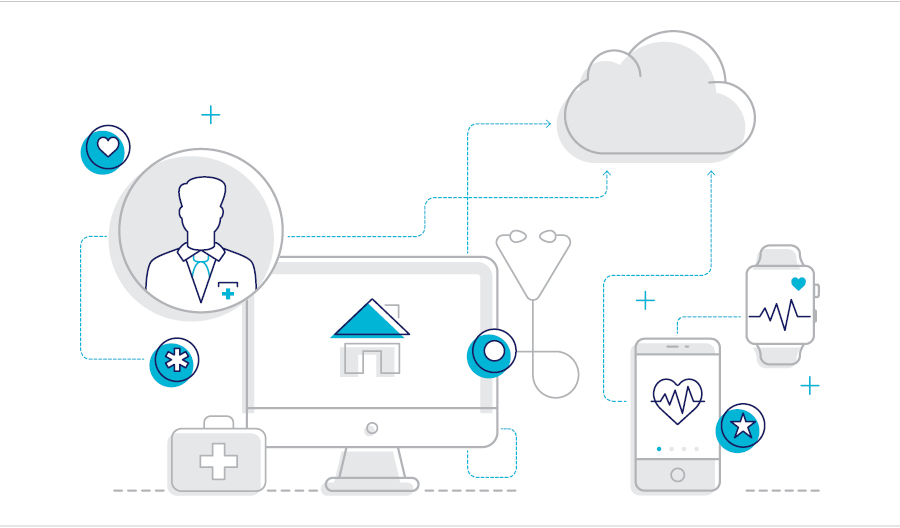Machine learning solutions enable healthcare organizations to better interact with patients, create better healthcare outcomes, and optimize and grow revenue streams.
It can be optimized as a means to create predictability, as well as address the needs of the majority. This not only benefits the patient/payer, but gives the provider better outcomes.

Population Health Management
Population health management (PHM) aims to improve the health outcomes of an entire population.
Population health management in practice means pooling the data of many individuals within a certain group. To do this, organizations gather individual patient data that is spread across multiple sources, and turn it into a single, actionable patient record. Machine learning is then used to loop similar patient records into specific groups.
By taking these individual records and using artificial intelligence to then sort them, healthcare organizations are able to make larger conclusions, identify risks for each group, and create actions to address their healthcare needs.
This way, population health management gives clarity to providers on risk-sharing models, and helps them to identify their overall patient needs. This helps to optimize costs and, over time, to grow revenue based on what the population needs.
For example, at SoftServe, we’ve worked with clients such as Outcomes Based Healthcare to gather data based on smartphone usage to reach larger conclusions about patient wellness. The solution, called the Sense360 app, involved researchers analyzing data collected to look for a relationship between survey answers and phone usage patterns.
We applied intelligent machine learning algorithms to understand how diabetes impacts peoples ’ outcomes. Built-in sensors in your phone measure movement, how fast your walk, the way you hold your phone, how often you use your phone to when you connect to Wifi, and Bluetooth and even the temperature of the air. These details combine to provide a better picture of how diabetes is affecting the user. Read more about the ongoing project here.
Diagnosis and Risk Factor Evaluation
In line with addressing greater population needs, machine learning also helps to identify those under the highest risk to get preventative actions and care. Using machine learning capabilities to analyze big data, healthcare organizations are able to evaluate and predict the probability of abnormal diagnoses in any given member population group. These results encourage patients to get evaluated based on their probability, and for measures to be taken by providers to meet their needs.
This not only keeps the population healthy, but also grows revenue through providing further care for those who need it.
Precision Medicine
Precision medicine is perhaps the most groundbreaking emerging solution to modern medicine.
Precision medicine is an approach to healthcare that tailors all medical care around the individual patient. And all aspects of the individual patient, too. It takes into account the patient’s lifestyle, medical history, predispositions, and even genome and genetic makeup. Precision medicine is the best way to gather insights about patients through AI, and the most granular solution for individual health.
Through precision medicine, healthcare providers are able to identify and treat abnormalities on a personalized level. It is also one of the best digital solutions to optimize costs and accelerate revenue growth in your healthcare organization. With the ability to collect the most precise data possible on a number of patients, your organization can then draw the best conclusions as to which illnesses are most prevalent, how to best treat them, and how to prevent them.
At SoftServe, we understand the unique healthcare environment and how machine learning and AI fit into a secure, scalable, regulatory-compliant ecosystem, supporting quality patient care and outcomes.
See the rest of our insights on the healthcare industry and AI in our white paper, “AI and Healthcare: Going Beyond Existing Applications.”

